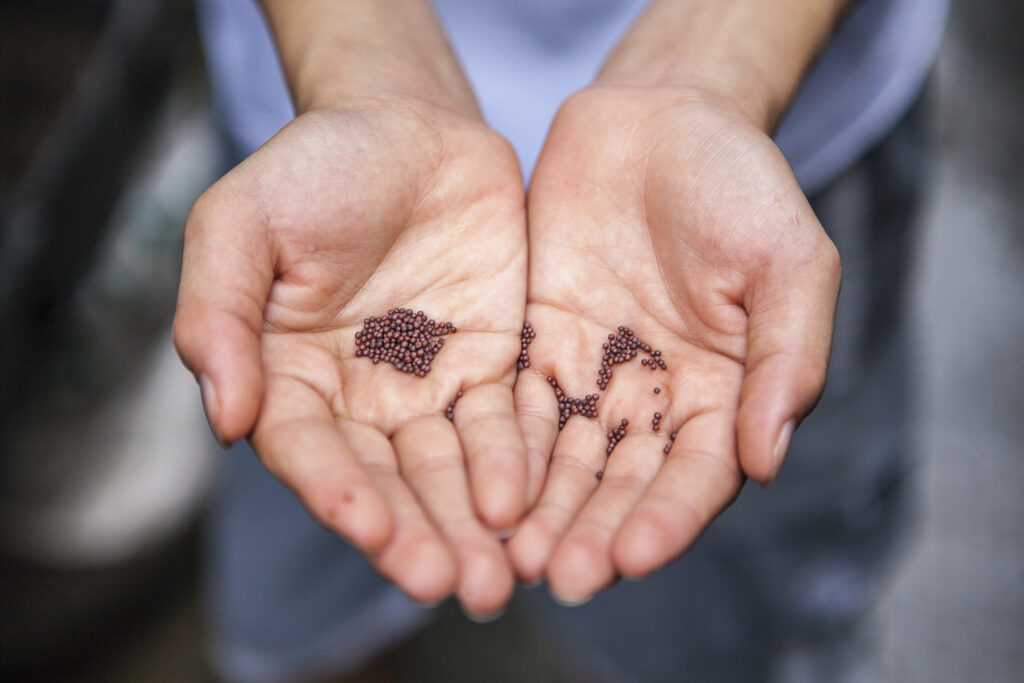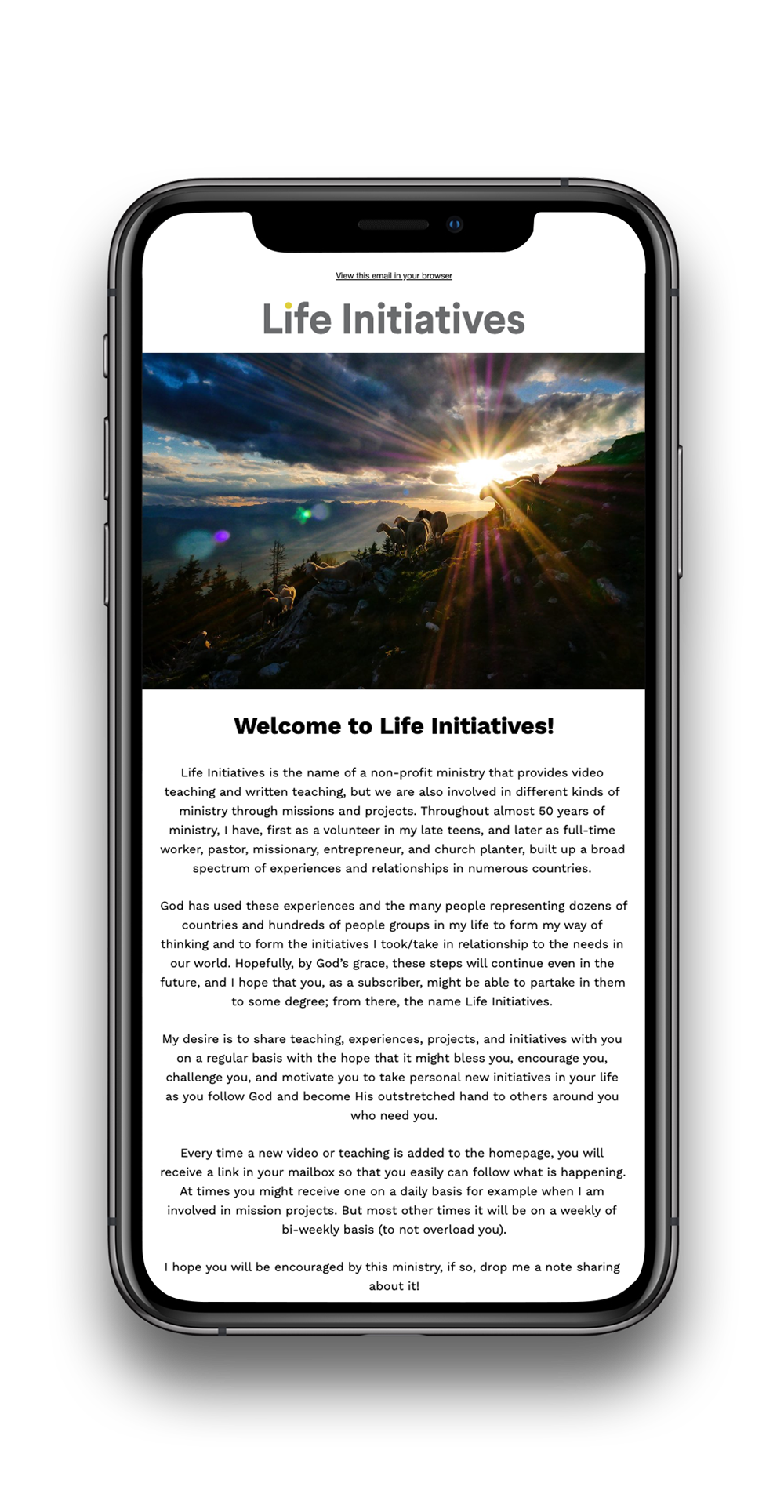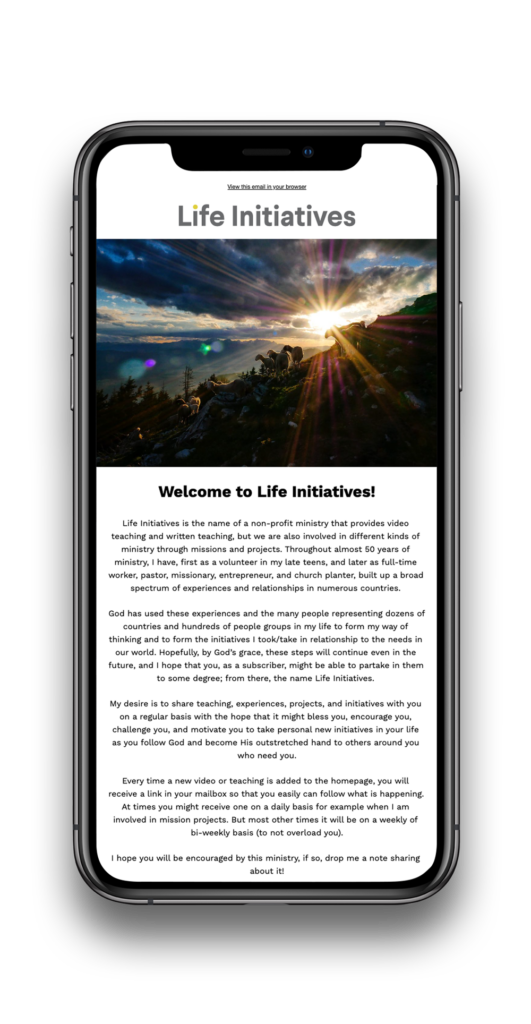Today I want to address the subject of sowing and reaping. We find that the Bible addresses” seed” in different ways.
Jesus is called “The Seed” (Gen. 3:15),
The Word of God is designated as “seed” (Luke 8:11; 1 Pet. 1:23)
The growth of the believer is compared to a plant (John 15)
The evangelism of the world is compared to a harvest (Matt. 13:30).
These examples are only the beginning of the image of seed as we find it in the Bible. We also find the image of “seed faith” in the Bible, a theme that I want to focus on in this study. It is needed to grasp the essence of this truth since we have to realize that the “little” we can bring to God does not limit God’s ability to do GREAT things with it. When we bring Him the smallest of our strength, faith resource, and ability, when it is placed in Him—sown like a seed—God guarantees fruitfulness and harvest as a result. It is within the laws of God’s creation—both the natural and the spiritual realm—and should be applied in all practical living.
Let us look at some Biblical principles in regard to “sowing and reaping”.
(Gen. 8:22). Noah’s first acts after the Flood were to build an altar and sacrifice to the Lord. God was pleased and made promises to the human family through the faith of Noah. He also instituted the Law of Seedtime and Harvest: “As long as the earth endures, seedtime and harvest, cold and heat, summer and winter day and night will never cease.” (v. 22).
(2 Sam. 24:24). 24 But the king replied to Araunah, “No, I insist on paying you for it. I will not sacrifice to the Lord my God burnt offerings that cost me nothing.” So David bought the threshing floor and the oxen and paid fifty shekels of silver for them.
David had sinned; and, as a result, a plague came on the people. To deal with this sin, the Lord told King David to build an altar on the threshing floor of Araunah and offer a burnt offering so that the plague might be stayed. Araunah tried to give David the land, the oxen, and other items to sacrifice. But David insisted on paying Araunah, saying that he could not present to God an offering that cost him nothing.

(1 Kings. 17:8-16). 8 Then the word of the Lord came to him: 9 “Go at once to Zarephath in the region of Sidon and stay there. I have directed a widow there to supply you with food.” 10 So he went to Zarephath. When he came to the town gate, a widow was there gathering sticks. He called to her and asked, “Would you bring me a little water in a jar so I may have a drink?” 11 As she was going to get it, he called, “And bring me, please, a piece of bread.” 12 “As surely as the Lord your God lives,” she replied, “I don’t have any bread—only a handful of flour in a jar and a little olive oil in a jug. I am gathering a few sticks to take home and make a meal for myself and my son, that we may eat it—and die.”
13 Elijah said to her, “Don’t be afraid. Go home and do as you have said. But first make a small loaf of bread for me from what you have and bring it to me, and then make something for yourself and your son. 14 For this is what the Lord, the God of Israel, says: ‘The jar of flour will not be used up and the jug of oil will not run dry until the day the Lord sends rain on the land.’” 15 She went away and did as Elijah had told her. So there was food every day for Elijah and for the woman and her family. 16 For the jar of flour was not used up and the jug of oil did not run dry, in keeping with the word of the Lord spoken by Elijah.
This scripture teaches us to invite God to work by His unlimited power within our limited circumstances and resources. Two important principles for our giving are illustrated by this passage of Scripture.
Your giving causes something to happen according to God’s eternal principles of seedtime and harvest. There is an old saying that bears repeating: “Without God, you cannot; without you, God will not.” God has already given from His side. Now we must step out in our giving to Him. Doing so will release His flow of provision on our earth-side of things. Sow! Give Him something to multiply!
(Matt. 17:19-20). 19 Then the disciples came to Jesus in private and asked, “Why couldn’t we drive it out?” 20 He replied, “Because you have so little faith. Truly I tell you, if you have faith as small as a mustard seed, you can say to this mountain, ‘Move from here to there,’ and it will move. Nothing will be impossible for you.”
When you plant a seed, God changes the nature of that seed so that it becomes a plant; and the power of life surges in that tender young plant to such a great extent that even a mountain of earth cannot stop it from pushing upward!
Jesus says our faith in God is like a seed. When we put our faith into action, that is, when we release it to God, it takes on a totally new nature. It takes on the nature of a miracle in the making.
What is the mountain in your life? Loneliness, loss of a job, disease, a wounded relationship, trouble in your home? Something else? Be encouraged! Jesus shows the way to see that mountain removed!
Gal. 6:7-9. 7 Do not be deceived: God cannot be mocked. A man reaps what he sows. 8 Whoever sows to please their flesh, from the flesh will reap destruction; whoever sows to please the Spirit, from the Spirit will reap eternal life. 9 Let us not become weary in doing good, for at the proper time we will reap a harvest if we do not give up.
God has a timetable for every seed we plant. His timetable is not always our timetable. Sometimes the “season” means a quick return. Sometimes it means a process or a slow return that may take years—even a lifetime. But we can count on three things.
What are we to do during the growing time of our seeds? (1) Refuse to become discouraged. (2) Keep our faith alive and active. (3) Give and keep on giving; love and keep on loving. Know this—His harvest is guaranteed. Continue in an attitude of expectancy.

(Matt. 25:34-40). 34 “Then the King will say to those on his right, ‘Come, you who are blessed by my Father; take your inheritance, the kingdom prepared for you since the creation of the world. 35 For I was hungry and you gave me something to eat, I was thirsty and you gave me something to drink, I was a stranger and you invited me in, 36 I needed clothes and you clothed me, I was sick and you looked after me, I was in prison and you came to visit me.’ 37 “Then the righteous will answer him, ‘Lord, when did we see you hungry and feed you, or thirsty and give you something to drink? 38 When did we see you a stranger and invite you in, or needing clothes and clothe you? 39 When did we see you sick or in prison and go to visit you?’ 40 “The King will reply, ‘Truly I tell you, whatever you did for one of the least of these brothers and sisters of mine, you did for me.’
Whenever you and I give, or plant our seeds of faith, we are doing it for Jesus. The person we feed becomes as Jesus to us. The person we visit in prison or in the sickbed becomes as Jesus to us. How may we know our Lord? We know Him in doing His works and in doing them as much to Him as for Him. We know Him in putting our arms around those who are desperate or alone.
Our giving is to take on very real and concrete forms as we reach out to people and as we give our resources, the focus of our faith is to be on Jesus and Jesus alone. He is God He is our source. He is the object of our worship and our love. We give to others but let us keep our vision clear. We look past them, with our faith directed to God and offered as a service of love for Him.
(James 5:15-16). 15 And the prayer offered in faith will make the sick person well; the Lord will raise them up. If they have sinned, they will be forgiven. 16 Therefore confess your sins to each other and pray for each other so that you may be healed. The prayer of a righteous person is powerful and effective.
Do you ever feel you have absolutely nothing to give to God? Well, you can always plant a seed of love-motivated prayer in another person’s life!
The problem for many is that they are sowing seeds in self-interest, self-love, needs focused on self. Their lives would change if they were to give out of their lives, their attention, their love and their interests on behalf of others. To take time to pray on behalf of others who are suffering.
And when people pray others are healed as they pray! Jesus also said that we are forgiven as we forgive (see Matt. 6:14-15). We experience love as we give love away. We are blessed as we bless others. God gives to us as we give to others.
(John 3:16). Do you find it difficult to believe that you should expect to receive back from your giving? Read again this most famous verse from the Bible and notice these things:
Sign up for life-changing insights, directly to your inbox.

© 2023 All Rights Reserved, Life Initiatives

Sign up for life-changing insights, directly to your inbox.